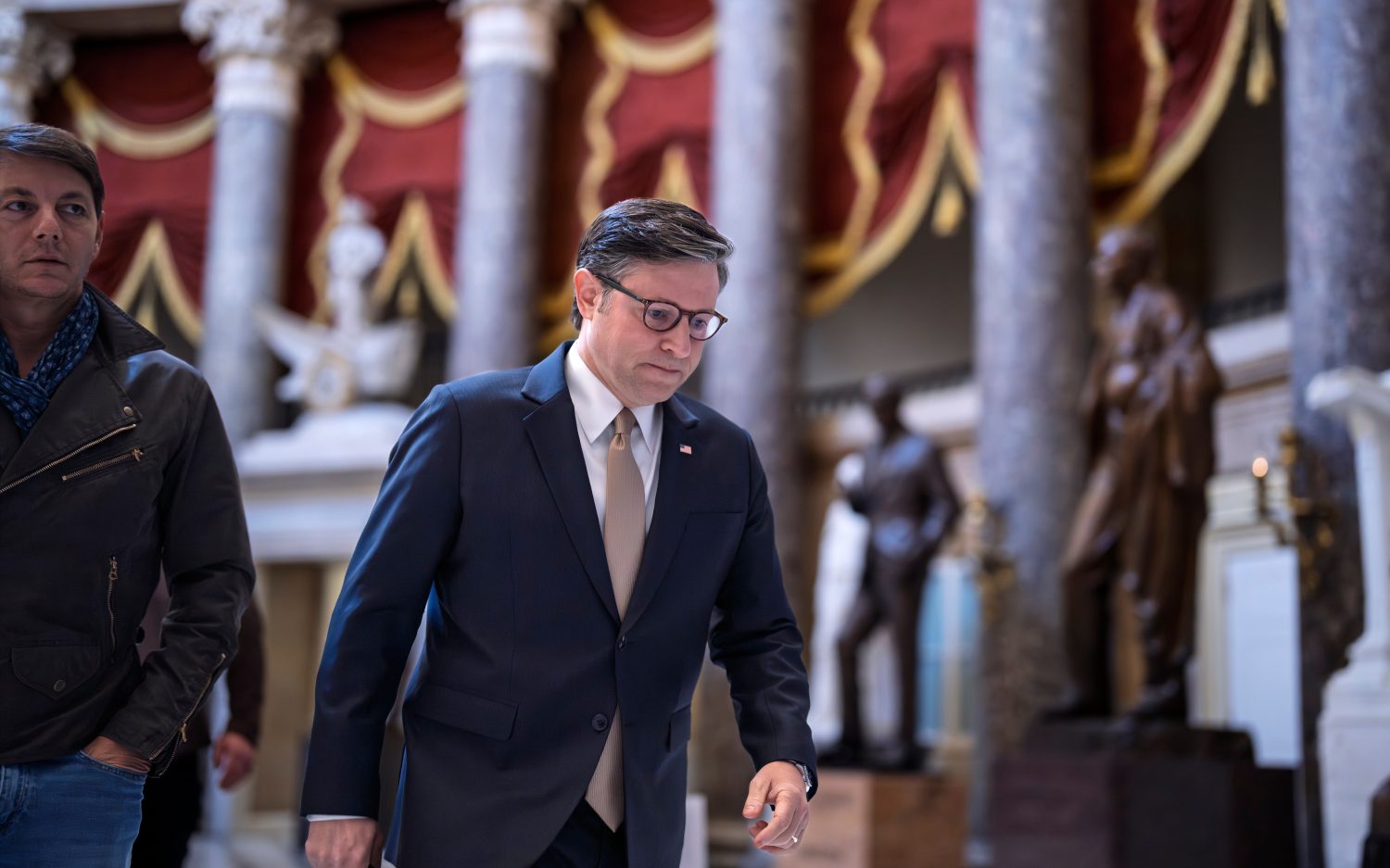Background conversations in Tampa
Behind the speeches, the Republican National convention provided a lobbying zone for under the radar groups like Justice Fellowship
TAMPA, Fla.-What people at home see on television when they watch the Republican National Convention is rah-rah speeches. But with 50,000 powerful conservatives in one place, the convention provided a once-in-four-years opportunity for the entire constellation of political operatives-inside and outside the party-to meet and strategize policy moves beyond the election.
Around almost every corner on the convention campus, which took over most of downtown Tampa, was some kind of lounge for private conversations, like the extravagant Huffington Post Oasis, with its immaculate white couches, marble bars, and free coconut water.
One chatty get-together at the Tampa aquarium featured cocktails and scuba divers in mermaid costumes swimming in the main tank with all the fish. Many meetings happened in doorways or on the plain convention center armchairs. The famous politicos were busy doing interviews on cable television, but the activists who turn the nation's policy gears took the time to have tete-a-tetes.
Grover Norquist of Americans for Tax Reform hosts the most well known of these conservative brain trusts every Wednesday in Washington, D.C. In Tampa, he held his weekly brain trust breakfast but with even more brains, bringing together Ralph Reed of the Faith and Freedom Coalition, Marjorie Dannenfelser of the Susan B. Anthony List, Democrat-turned-Republican Rep. Artur Davis, Virginia Attorney General Ken Cuccinelli, members of the European Parliament, congressional staffers, county-level activists, and even a man who lobbies the federal government to use more classical architecture in its buildings. As each person explained what issue he or she was working on, Norquist made sure that the listeners know how to get in touch with that person so they can strategize together.
Craig DeRoche of Justice Fellowship, Prison Fellowship's public advocacy arm, flew down from Michigan to the convention to talk informally with politicos about a little-discussed issue: criminal justice reform focused on transforming prisoners so they can reenter society and avoid re-offending.
"You can save a whole bunch of time and money from traveling around the world" in coming to the convention, DeRoche said. "They're all in the same place."
Justice Fellowship has seen fruit in this push, especially in state legislatures over the last few years:Georgia, Oklahoma, Hawaii, and Pennsylvania have recently passed reform laws (three states with Republican governors, one, Hawaii, with a Democratic governor).
"The topic of criminal justice reform, particularly on the conservative side of the aisle, is gaining a lot of traction," said DeRoche. "In a large part that's based on the seeds Chuck Colson [Prison Fellowship's founder] planted in these states over 35 years. Those seeds are starting to flower and grow."
DeRoche, a Republican, is the former Michigan House Speaker who left office in 2009 and a year later was convicted for drunk driving. He has acknowledged his alcohol problem and said his arrests were the best thing that could have happened to him, leading him to become a Christian in 2010.
At the convention, DeRoche met with national and state-level leaders and activists to press the criminal justice reform issue along with his powerful personal story. Among Republicans he's talked to in the last year, he said only two or three have vehemently opposed the reforms he advocated, which are chiefly focused on improving the care of prisoners. But DeRoche admits that Congress is a long way from passing any kind of criminal justice reform, which he said would have to filter up from state legislatures.
"Welfare reform-it was adopted and improved at a state level before it moved up to the federal level," he said.
Sen. Jim Webb, D-Va., has been the chief advocate for such reforms in Congress and he is retiring at the end of his term this year. Justice Fellowship will now have to find new advocates for its cause.
Samuel Rodriguez, the head of the National Hispanic Christian Leadership Conference, delivered the benediction to the convention on Tuesday night. Privately he pressed Republicans at the convention about immigration reform and moving away from some of the harsher state laws passed in the last year or so.
Rodriguez said he was "very concerned" that some of the architects of the Arizona and Alabama immigration laws were involved in setting the Republican platform on immigration at the convention. He said he advised the party "to distance itself" from such laws.
Rodriguez also told Republicans to talk more about abortion and family values with Hispanic voters, issues he says will draw that demographic in.
"There has always been a faithful 'amen' corner regarding my contributions to the Republican Party," he said, but added that more Republicans at these conventions are beginning to listen.
People like DeRoche and Rodriguez know that if Mitt Romney or any other politicians win these elections they are seeking so desperately, they'll then have to govern-and the August meetings could begin to pay off.
An actual newsletter worth subscribing to instead of just a collection of links. —Adam
Sign up to receive The Sift email newsletter each weekday morning for the latest headlines from WORLD’s breaking news team.





Please wait while we load the latest comments...
Comments
Please register, subscribe, or log in to comment on this article.